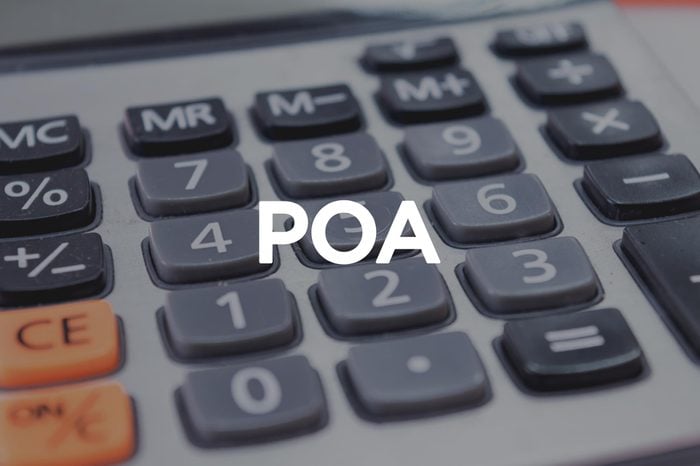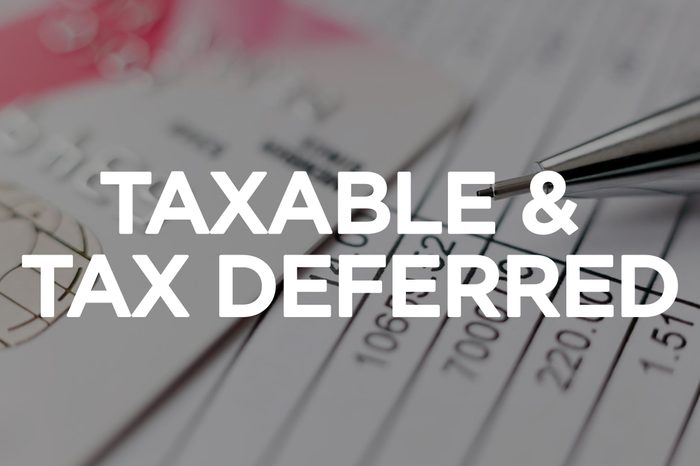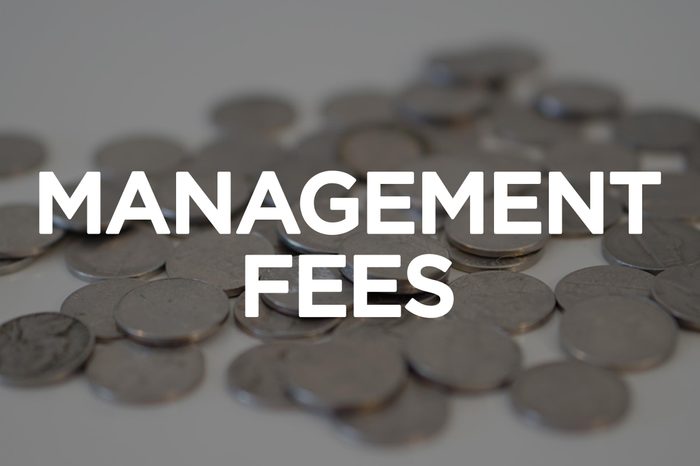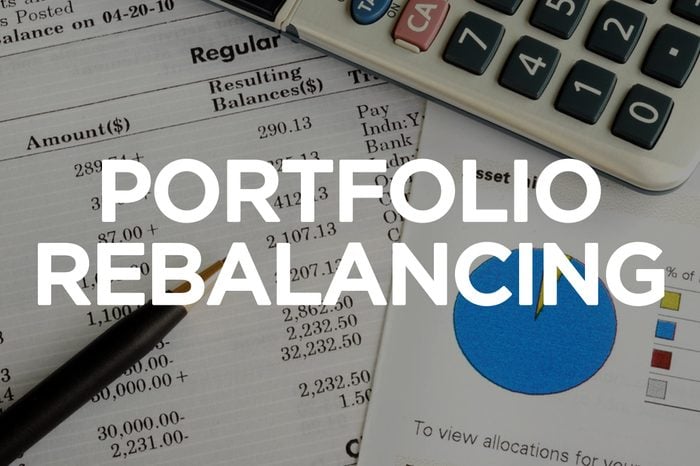
Compound interest
According to the head of investments at Wealthsimple, Dave Nugent, compound interest is an important factor to understand since it capitalizes on the long lead, as opposed to short-term wins. As he explains, “Compound interest is the principle by which the interest you earn also earns interest, and the interest on that interest earns interest, and so on forever. The larger your balance gets, the bigger those interest numbers become.” On the other hand, you’ll want to avoid compound interest when it comes to your credit card. Nugent suggests paying down any debt before beginning investing, so you’re not canceling out your effort.
Steal these secrets of saving money from experts.

Net worth
Likely reserved in your head for the top-earning executives and celebrities in the world, President and CEO of Jax Federal Credit Union, Gerri Sexsion reminds everyone has a net worth. “Simply put, your net worth is the difference between what you own, your assets, and what you owe, your liabilities. Over the course of your life, your net worth should increase as you pay down debts and build wealth through savings and investments,” she explains. To determine your net worth, start by adding the current market value of your home and car, as well as any balances in your checking, savings, retirement, or other investment accounts. Then, it’s time to start deducting. As Sexsion says, “Subtract all of your debt, including your mortgage balance, credit card balances, student loans, and other obligations. The resulting number is your current net worth.” From there you can start setting future financial goals. With good planning, you could even retire early and live in comfort.

Durable Power of Attorney (POA)
You might not want to think about this right this very moment, but when your time comes, it’s important to have a trusted person—aka, a power of attorney—to handle your finances. While you hopefully have many years left on this Earth, it’s especially important for parents or those who have dependents of any kind to be prepared in the event of an accident or unforeseen incident. A POA will handle the often-difficult and gut-wrenching decisions when you aren’t able to make them yourself, says Kimberly Foss, founder and president of Empyrion Wealth Management. You can empower your POA to make healthcare and financial decisions, among others, in the event that you are incapacitated.

FICO
As an acronym for ‘Fair Isaac Corporation’, the company that developed the analytical system behind credit scores, your FICO number should always be top of mind. Sexsion advises those teetering toward 40 to aim to raise your credit score as close to perfect (800 to 850) as you can. When you fall under 700, you run into the potential danger of higher interest rates on credit cards, mortgages, and more. “Many factors affect your score, including the number of accounts open in your name, your payment history, and total amount owed. By carefully limiting the number of new accounts you open, making payments on time, and steadily decreasing your debt, you can slowly but surely improve your FICO score,” she says. Find out 11 smart ways to improve your credit score.

Diversification
The best way to describe this well-known term, according to Nugent, is a “fancy way of saying ‘don’t put all your eggs in one basket.'” When you’re investing, it’s in your best interest, no pun intended, to vary your funds in various areas. “Some investments go up, others go down. Overall, the balance makes you better off,” he adds. To reap the most benefit, a financial advisor can help you identify the best variety of low and high-risk opportunities, giving you a retirement portfolio that casts a wide net.

Tax-free income
You’ll find this term associated primarily with municipal bonds, traditionally issued from state or local governments, school districts, or other taxing authorities. “The interest earned from municipal bonds or mutual funds that invest in municipal bonds is not taxed by the federal government, ever,” Foss says. “if you live in a state with income tax, bonds issued by your home state are also exempt from that tax.”

Taxable and tax deferred
If you’re investing, you will sometimes owe Uncle Sam some of the profit from your funds, hence taxable. “If you own stocks that pay dividends, you must pay income taxes on those dividends. It’s the same for interest you earn on bonds, CDs, or savings accounts, and if you sell a stock for a profit, you must pay tax on that,” Foss explains. With a SEP IRA or a 401K, the income earned is tax deferred, which means that you don’t pay taxes as long as the money stays in the account. But you will eventually pay taxes when you withdraw for retirement, Foss adds.

Management fees
Especially if you’re hesitant to manage an investment portfolio all by yourself, hiring a professional is a recommended solution. Before you set up a meeting though, Nugent says to be mindful of fees in the form of “management expense ratio” or MER. “Typically, investors pay a management fee to their investment advisor, and a MER to the fund their money is invested in,” he says. “You’ll want to understand exactly how much you’re paying in total fee–they can take a bit bite in your overall earnings.”
How do you protect your assets? Nugent says to not shy away from the tough questions and read—and re-read—the fine print. “Traditional advisers charge 1 to 2 percent in fees—on top of the MERs charged by the funds—and they can really add up,” he explains. “Robo-advisors who invest in exchange-traded funds (ETF) are becoming more popular and charge much less, meaning more money in your pocket.”

Portfolio rebalancing
As the name suggests, Nugent explains “portfolio rebalancing” is moving your money between investments, so you can maintain the perfect balance to help you achieve your financial goals. Much like diversification, this is simply the act of keeping up with the investments as they ebb and flow. “It keeps you on track. Some rebalancing is to make sure you maintain the portfolio you initially set up. And some portfolio rebalancing happens because your goals will change over time,” he notes. After all, the closer you get to retirement, the more conservative you want to be with your investing, since you’ll need to gain access to it sooner than later.
These are the most common retirement mistakes people make—and how to avoid them.